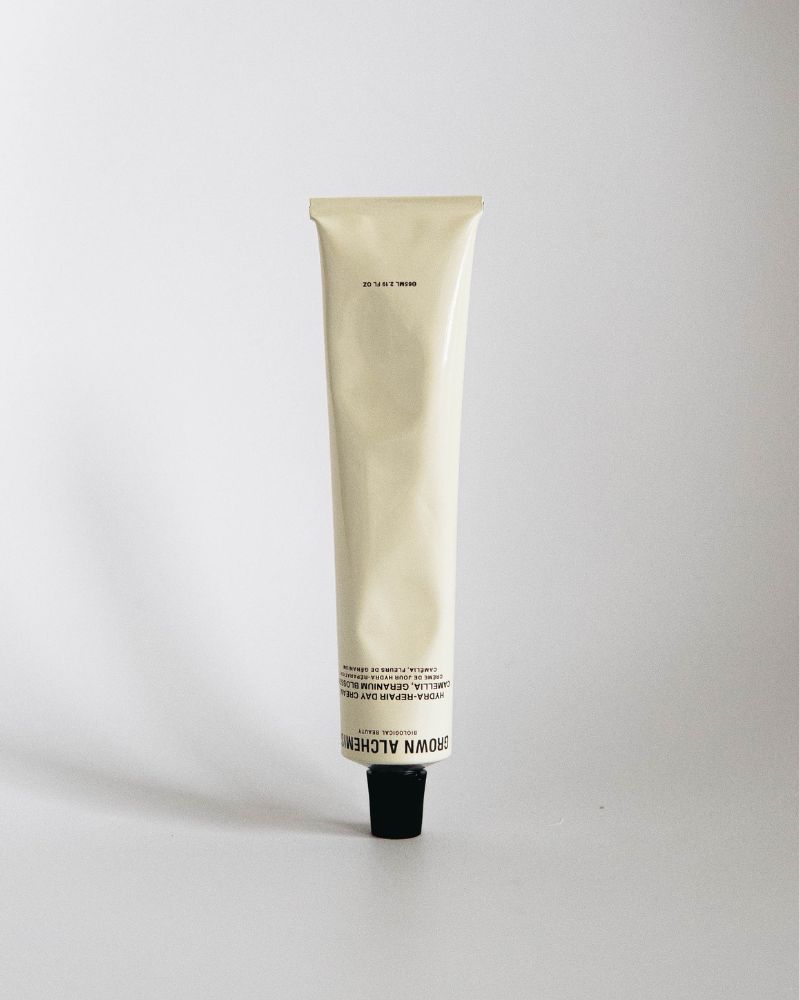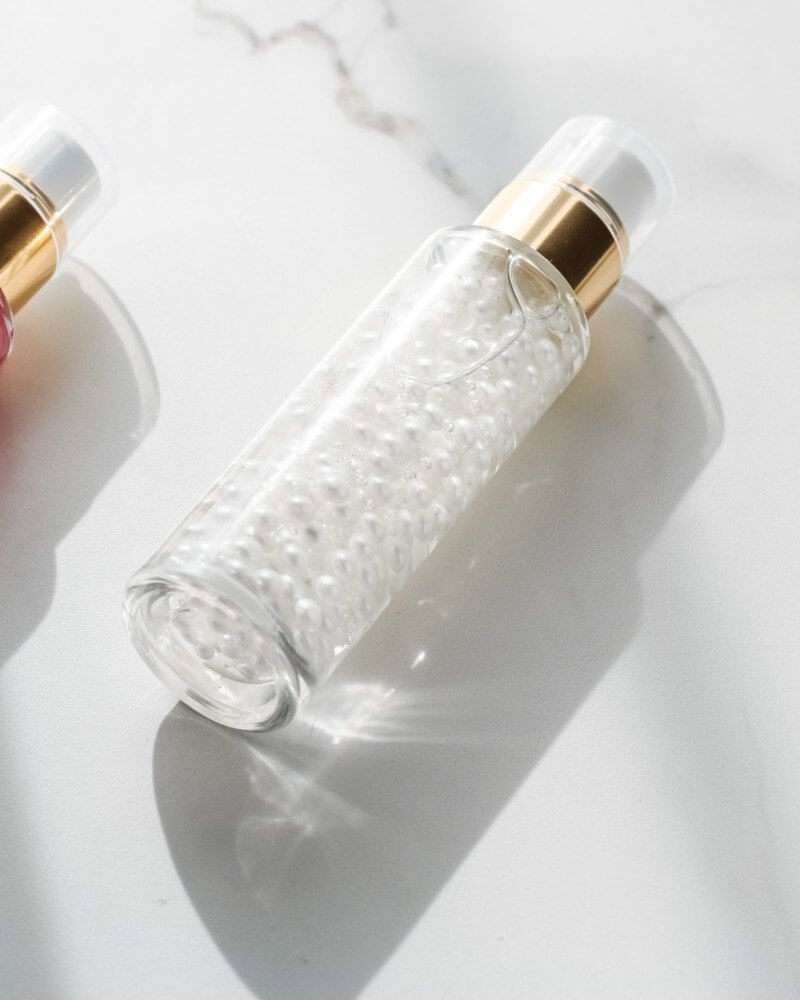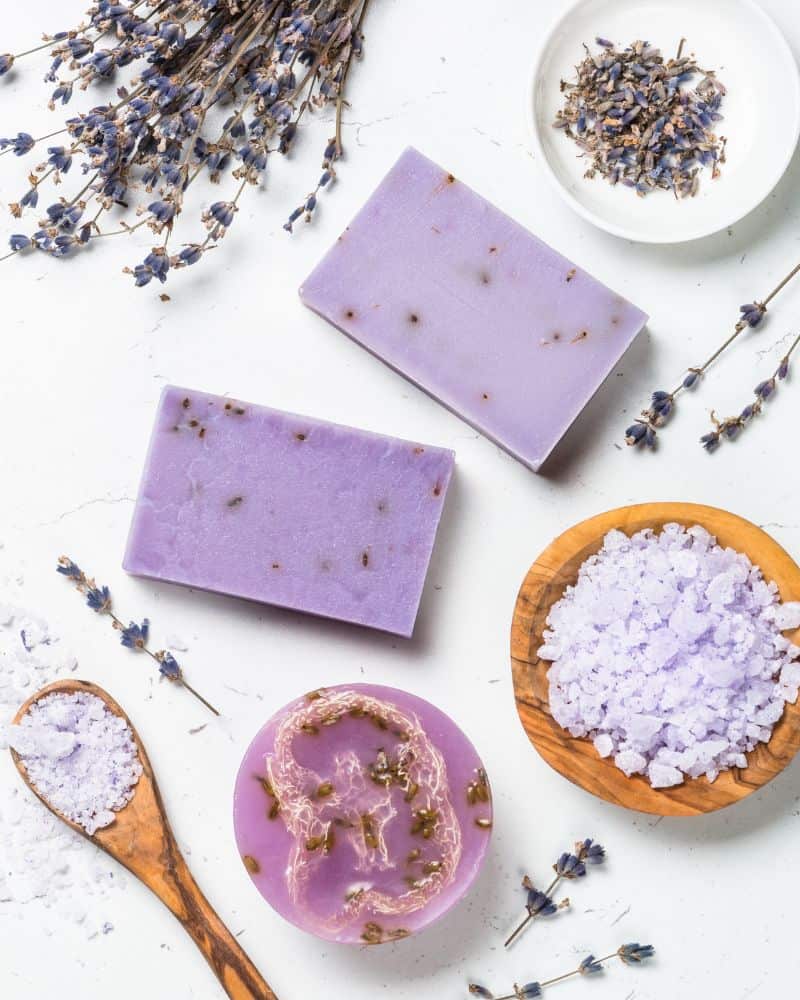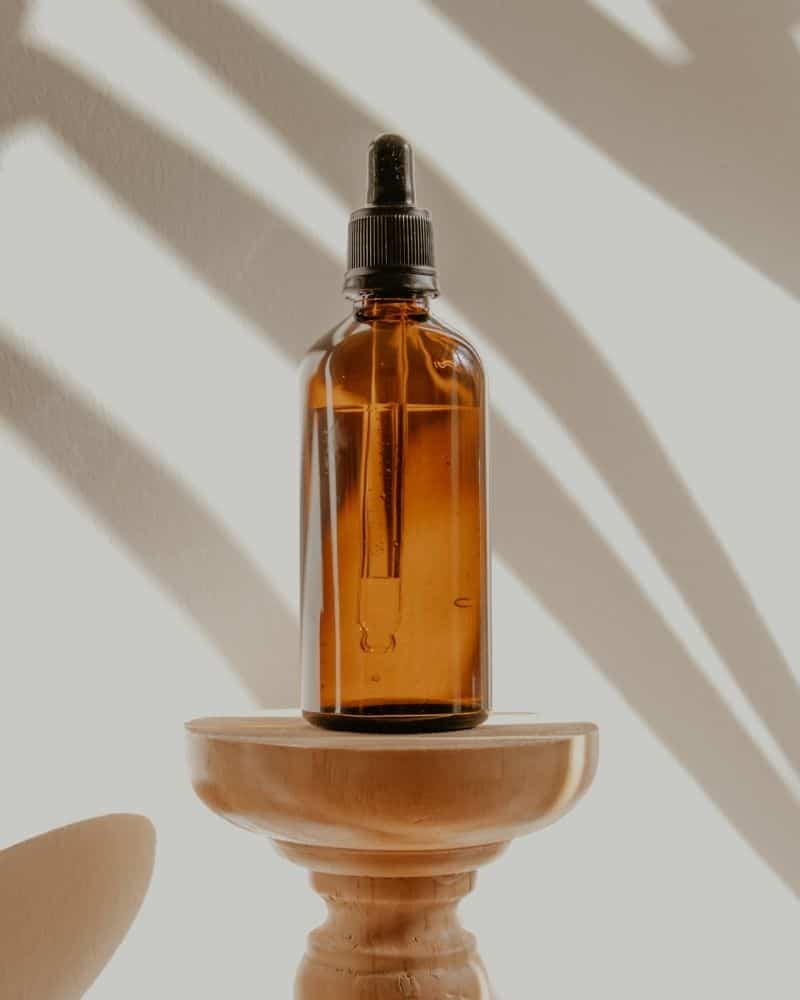Azelaic Acid And Vitamin C: Can You Use Them Together?
This post may contain affiliate links.
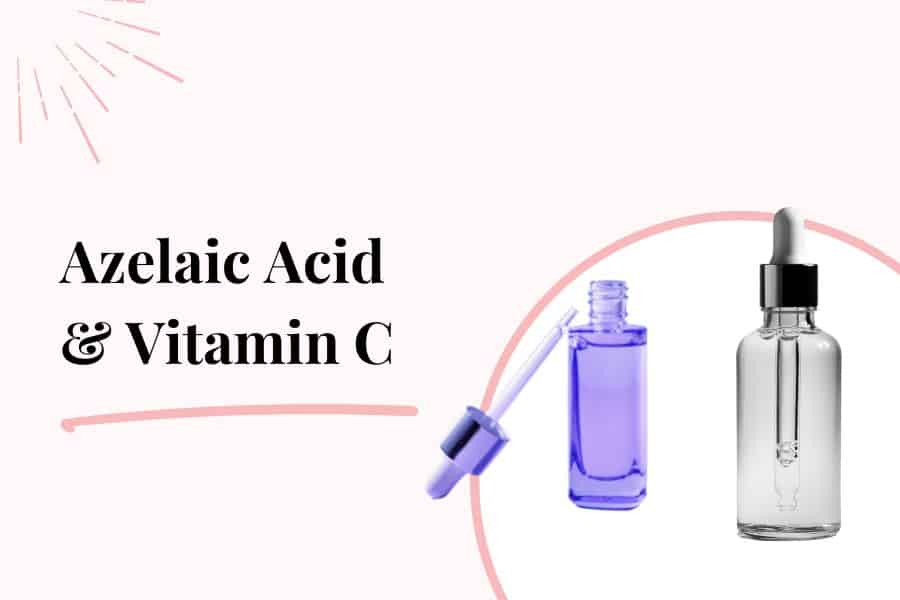
Do you want to improve your skin’s texture and appearance? If you want to rejuvenate your skin and make it firmer and tighter, dermatologists recommend using products that contain azelaic acid and vitamin C. But do these products work well mixed together? The combination of azelaic acid and vitamin C is a popular one for good reason. The two ingredients work well together to provide a range of benefits for the skin. But should you use them together? Here’s what you need to know.
Sometimes, the beneficial ingredients in your skincare routine don’t work well together and can cause irritation when applied one top of one another. Your latest miracle moisturizer might completely undo the effects of a luxury nourishing serum if you are not careful with layering your active ingredients. So let’s dive in and find out whether or not azelaic acid and vitamin c can be layered.
What Is Azelaic Acid
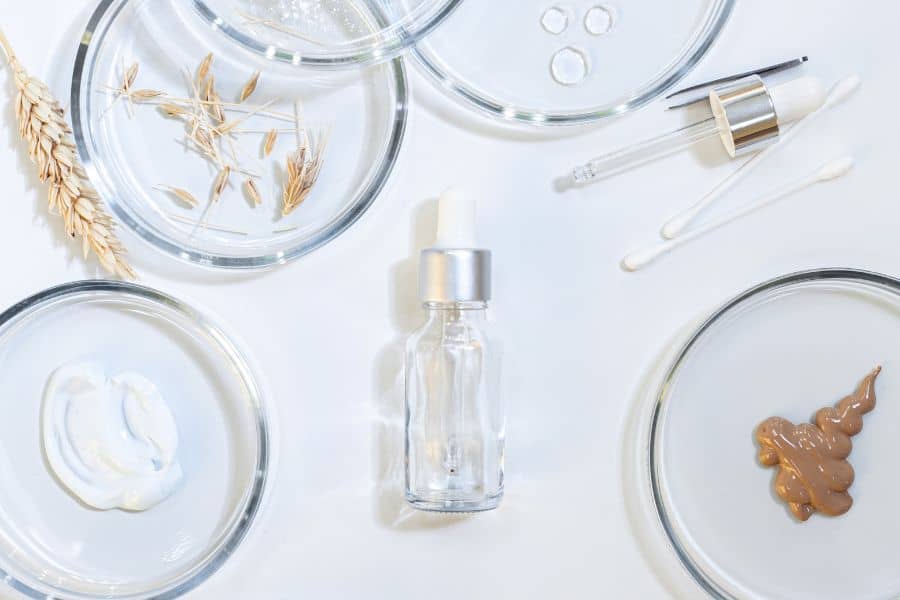
Azelaic acid is a dicarboxylic acid that occurs naturally in grains like wheat, rye, and barley. Although it’s naturally occuring, synthetic Azelaic Acid is usually used in skincare products.
Azelaic acid has been shown to be an effective acne treatment because of its ability to kill acne-causing bacteria while also reducing inflammation, which is why it’s FDA approved to treat acne and rosacea.
Azelaic acid is a keratolytic, an antibacterial, antioxidant, and anti-inflammatory that helps to break down dead skin cells and improve skin texture. And even though Azelaic Acid is a powerhouse ingredient, it’s actually very gentle on the skin and is one of the best exfoliants for those with sensitive skin because it’s much more gentle than other ingredients like retinoids or BHA’s.
Azelaic acid is actually produced by the healthy bacteria that live on your skin known as Malassezia furfur? In order for this to affect your skin in a positive way, you must have enough healthy bacteria on your skin already, though—and that’s usually not the case with troubled skin.
While it might not be the first ingredient to come to mind (or maybe even at all), azelaic acid is a favorite of dermatologists for both its gentleness and versatility. It helps with a ton more than just acne breakouts: It may help banish other forms of bacteria and reduce redness brought on by different skin conditions such as rosacea or hyperpigmentation.
This ingredient is derived from grains, although synthetic variations of it are available as well. You can find azelaic acid both in prescription/medicinal and commercial forms. Prescription azelaic acid is highly concentrated, and it can contain up to 20% of azelaic acid, while OTC product typically have a much lower dose (usually around 5-10%).
Benefits of Azelaic Acid
- Anti-Bacterial – Azelaic acid has anti-inflammatory and antibacterial properties that make it ideal for acne-prone skin. It kills acne cause bacteria which treats active acne and helps prevent new acne from forming
- Anti-Inflammatory – Azelaic acid is anti-inflammatory so can reduce redness, swelling, and inflammation. This makes it perfect for individuals with sensitive skin or ailments like rosacea or eczema, but it can also help reduce inflammation associated with acne
- Smooths Texture – Azelaic acid aids in the breakdown of the attachments that hold dead skin cells together, resulting in smoother, brighter, and softer skin.
- Keratolytic – Azelaic acid’s keratolytic properties help to break down dead skin that that can lead to clogged pores and acne which can help with closed comedones and other textural issues
- Treats Roseacea – Rosacea is a common skin condition that can cause redness, inflammation, and pimple like lesions. Azelaic acid is one of the most efficient rosacea treatments since it helps to reduce redness, swelling, and bumps associated
- Fades Hyperpigmentation – Azelaic acid is also great for fading dark spots and hyperpigmentation, including acne scarring by inhibiting the creation of an enzyme called tyrosinase, which is important in melanin synthesis (which is what creates pigment)
- Treats & Prevents Acne – Azelaic acid is also useful for treating and preventing acne. It helps to kill bacteria, unclog pores and reduce inflammation which are all key in treating acne
What Is Vitamin C
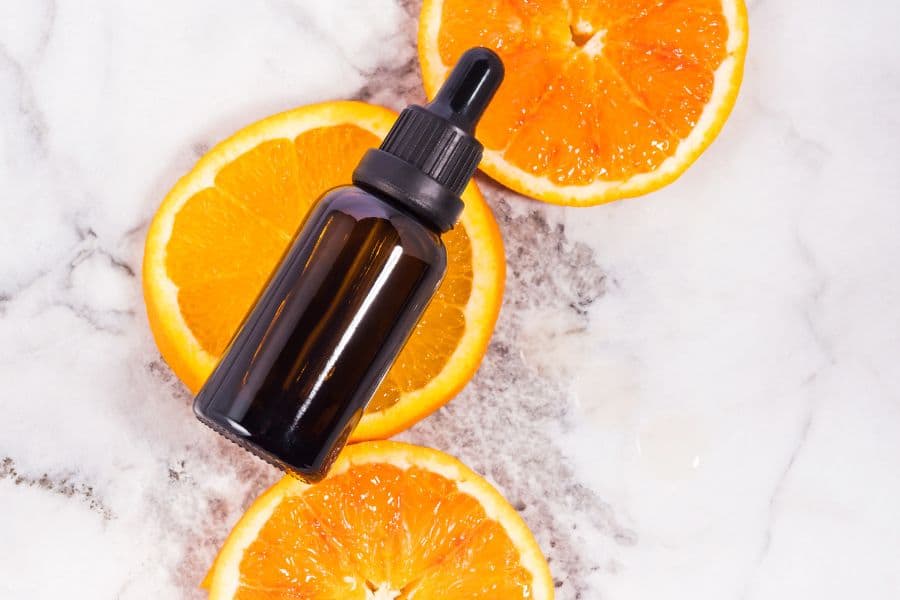
Vitamin C is a powerful antioxidant that’s normally found in the skin. While we can absorb vitamin c from our food, the magic really happens when used it’s used topically. Vitamin C has a whole host of benefits for the skin. It’s been shown to brighten the complexion, even out skin tone, and reduce the appearance of fine lines and wrinkles.
Although this vitamin can be extracted from fruits, the lab-made variation of it is most commonly used for skincare. This makes its production a lot more affordable and sustainable.
The vitamin C molecule is highly unstable, so you might find products with this nutrient that need to be kept away from the sun to keep the product from oxidizing. However, more stable variations of it have been created in recent years which is good news for our skin!
There are many different types of vitamin c available – from the strongest (l-abscorbic acid) to the gentler forms (ascorbyl glucoside). The stronger the form, the more potent it is, but it can also be more irritating. If you have sensitive skin, start with a gentler variation and work your way up.
A quality product that contains enough vitamin C will even out your complexion and fade dark spots while stimulating collagen production. This will give the appearance of tighter, more youthful skin.
Benefits of Vitamin C
Stimulates collagen – one of the biggest benefits of topical Vitamin C is that it helps to stimulate collagen production which is a critical component in skin’s structure and is involved in keeping skin firm, bouncy and youthful. As we age, collagen production slows, which leads to sagging skin, loss of elasticity and lines and wrinkles. Keeping collagen production stimulated can help to reduce signs of aging and keep skin looking youthful, firm and glowing
- Protects Against Damage – Vitamin C is one of the most potent antioxidants, which means it can help defend skin against environmental and UBV damage as well as help repair the skin after damage has been done. Vitamin C helps to neutralize free radicals before they cause skin and cellular damage (which can lead to premature aging)
- Fades Hyperpigmentation – Vitamin C is also incredible at fading hyperpigmentation. You know that zit you popped and now it’s left a brown spot that’s somehow even worse? Yeah, Vitamin C can tackle that! Plus it can also help with sunspots, acne scarring and any other form of skin pigmentation
- Minimizes lines and wrinkles – Vitamin C can smooth the skin texture which helps to diminish fine lines and wrinkles. Overtime, as it stimulates collagen production, fine lines and wrinkles will be “filled in” and skin will look more plump and youthful. Additionally, since it protects the skin from photoaging, it keeps those lines and wrinkles from deepening
- Evens skin tone – Vitamin C is known for its skin lightening properties, which means not only can it fade hyperpigmentation, but it can also reduce sun spots, freckles and other pigmentation issues
- Smooths texture – Vitamin C is acidic, which means it can help exfoliate the skin. Regular exfoliation can reduce rough skin texture and flaky skin. It can also help reduce pore size and give an overall healthier appearance to the skin
- Speeds healing – Since Vitamin C stimulates collagen production, it can help to heal wounds and speed up healing of any injuries. Vitamin C is known for being involved in the initiation of the immune response and tissue repair response when the skin is injured. This can mean healing from a scrape or even acne
- Anti-inflammatory – One of the lesser known benefits of Vitamin C is that it’s an anti-inflammatory agent. This means it can help reduce any inflammation in the skin from damage, infection (like acne) or other skin conditions like dermatitis or eczema
- Makes skin glow – Vitamin C has been shown to significantly improve skin’s radiance.
Can You Use Azelaic Acid And Vitamin C Together?
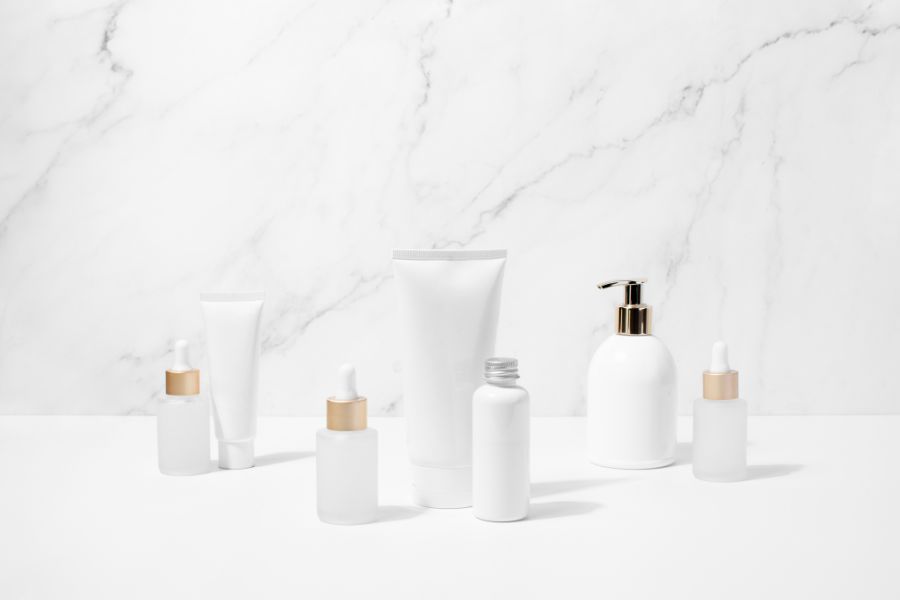
Yes, you can use azelaic acid and vitamin c together. Azelaic acid has tons of benefits for the skin – it can reduce redness, smooth texture, fade hyperpigmentation and more. Vitamin C is also great for the skin as it helps to brighten the complexion and fight off free radicals. Together, these two ingredients can help to even out skin tone, brighten the skin, and fight acne.
Fortunately, there is no issue with using these two ingredients together. While many actives can negate each other or cause reactions, azelaic acid and vitamin c can be layered on top of one another with no issues!
Related post: What’s The Difference Between Azelaic Acid & Benzoyl Peroxide?
Benefits Of Using Azelaic Acid And Vitamin C Together
- Reduce redness – Both vitamin c and azelaic acid are great anti-inflammatory ingredients which means they can help to reduce redness, including redness associates with pimples, acne scars or irritation.
- Reduce inflammation – since these ingredients are anti-inflammatory, vitamin c and azelaic acid can help to soothe and calm any inflamed pimples or blemishes as well as reduce the appearance of redness, swelling and irritation.
- Fade hyperpigmentation – If you’re looking to get rid of acne scars, azelaic acid and vitamin C can be a great combo for you! Azelaic acid inhibits melanin production to treat and prevent acne scarring while vitamin c brightens and fades discolorations
- Brighten skin tone – If you want to brighten up your complexion, azelaic acid and vitamin C can help with that too! Azelaic acid helps to exfoliate the skin and unclog pores, while vitamin C evens out your skin tone and makes your complexion glow
If you have any issues with hyperpigmentation, sun spots, uneven skin tone or acne scars, vitamin c and azelaic acid are the perfect combo!
How to Use Azelaic Acid and Vitamin C Together
The better news is that you can maximize the effects of these ingredients by learning how to layer them properly in your skincare routine. Here are some more tips to combine these incredible ingredients in your daily skincare routine.
When layering azelaic acid and vitamin C, always start with the thinner consistency first and then end with the thicker one. So if you’re using a vitamin c serum and an azelaic acid cream, apply the vitamin c first, followed by azelaic acid.
Or if you’re using an azelaic acid serum and a vitamin c moisturizer, use the azelaic acid first and then the vitamin c moisturizer.
It’s often recommended to use vitamin c in the morning because it helps to fight free radicals and sun damage during the daylight hours. So you can always use your vitamin c in the morning and azelaic acid at night but you can use them both twice a day if your skin can handle it.
Related post: Azelaic Acid Vs Alpha Arbutin
Azelaic Acid And Vitamin C Order
When it comes to combining these ingredients, many people wonder “Do you apply vitamin C before azelaic acid?”
The answer is, it depends on the formulation of the products you are using. As always, follow the thinnest to thickest rule. Apply the thinnest product first and then work your way up to the thickest products.
Can You Use Azelaic Acid and Vitamin C In The Morning?
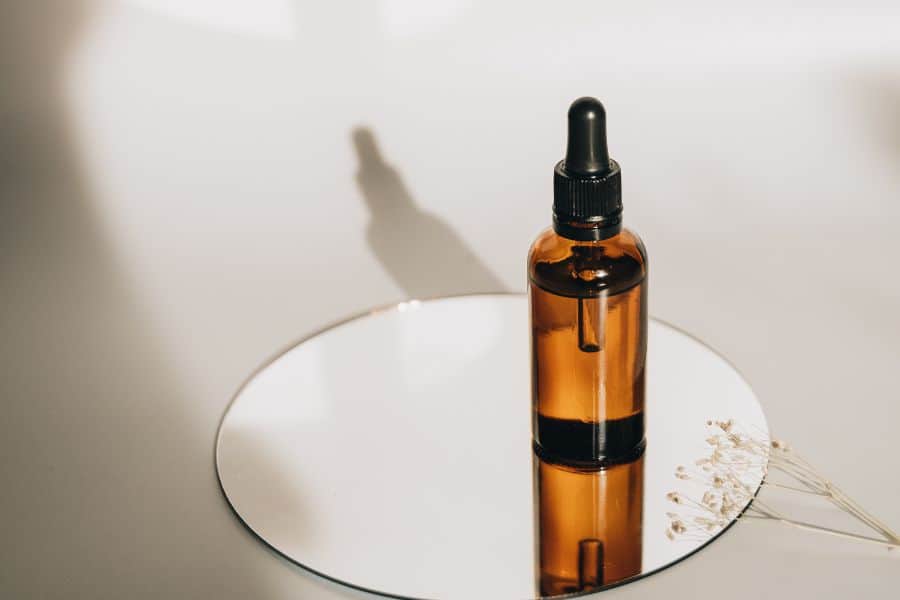
Yes, you can use both azelaic acid and vitamin C in the morning! In fact, it’s often recommended to use vitamin c in the morning because it helps to fight free radicals and sun damage during the daylight hours. Azelaic acid can safely be used both in the morning and night as well.
Azelaic Acid And Vitamin C Wrap Up
Azelaic acid and vitamin C are two powerhouse ingredients that can do wonders for your skin when used together. They work synergistically to reduce redness, inflammation, hyperpigmentation, sun spots and uneven skin tone. In addition, they also help to exfoliate and brighten the complexion. By using azelaic acid and vitamin c in your skincare routine, you can achieve a clear, smooth and radiant complexion, fight stubborn hyperpigmentation and improve your skin health. While some skincare ingredients can’t be safely mixed, vitamin c and azelaic acid are two that can be used together to maximize their benefits.
